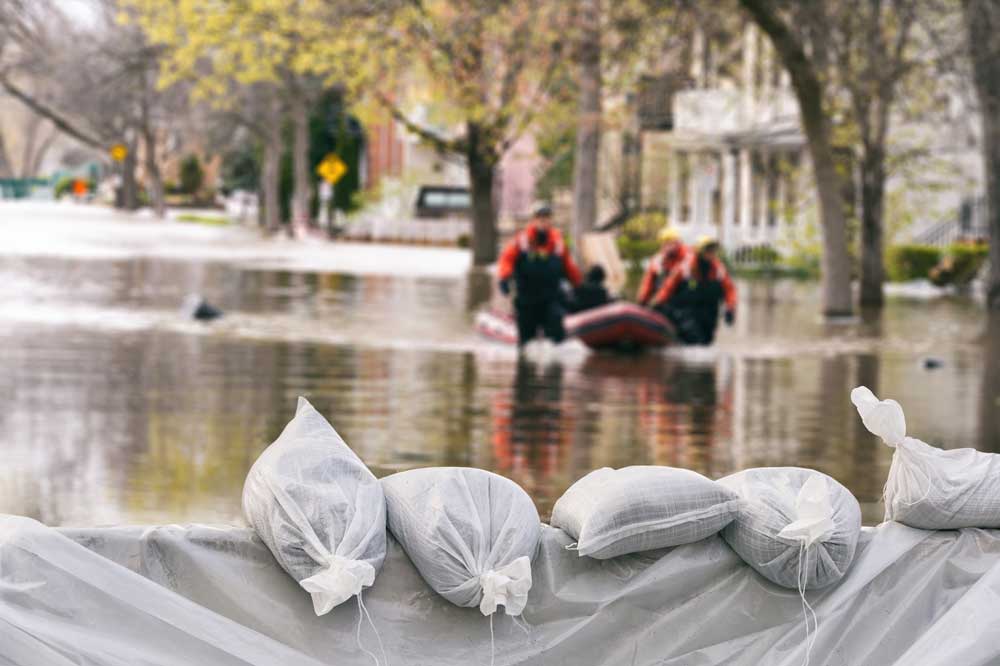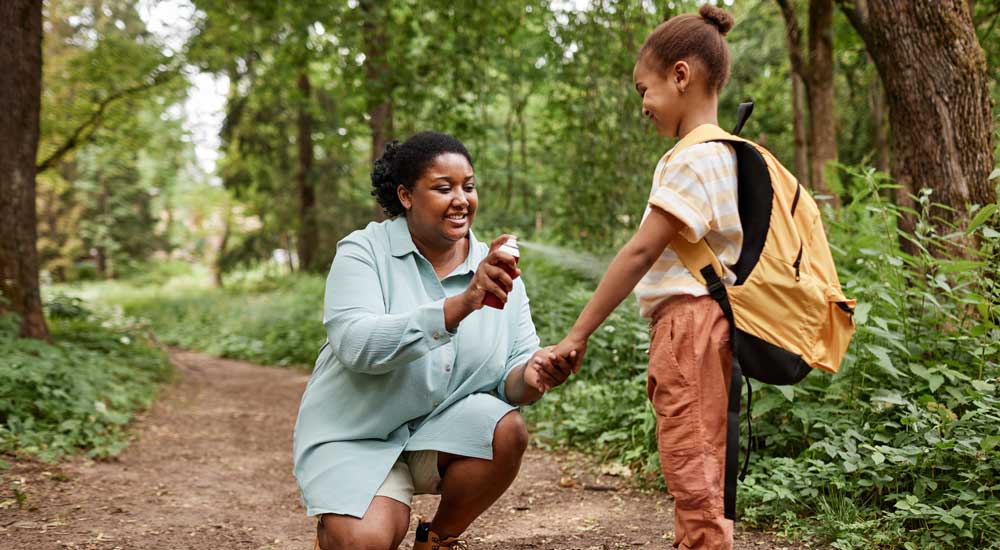How To Weatherproof Your Health
April 18, 2024

Every year our climate changes. In recent years, we have seen hotter seasons, stronger storms and other weather threats.
Experts say that these changes can affect our health*. Climate change threats such as air pollution or heat may cause or worsen illnesses or diseases.
Here are a few health challenges you may face as our climate changes and what you can do to stay healthy.
Protect yourself from the sun
If you’ve ever had a sunburn, you know the pain of sun exposure. A little vitamin D is important for your health. But too much time in the sun can have negative effects on your health.
Studies have found that our changing climate adds to an increase* in ultraviolet (UV) rays.
Most skin cancers are caused by too much exposure of UV rays. Your eyes may also be harmed* by overexposure of UV radiation, according to studies.
Following basic summer safety can be important during heat waves. Protect yourself by staying in the shade. Wear protective clothing.
Apply and reapply a broad-spectrum sunscreen with an SPF of 15 or higher. Avoid artificial sources like tanning beds and sunlamps.
Avoid the heat
South Carolinians know how miserable hot summers can be. In recent years, we have seen more frequent, severe and prolonged heat waves. This could result in more heat-related deaths and illnesses*.
Extreme temperatures can result in illnesses like heat cramps, heat exhaustion and heatstroke.
To stay safe from heat*, keep cool by staying indoors. Drink plenty of water. And know the signs of heat-related illnesses*. Find more helpful tips and resources* on the Centers for Disease Control and Prevention (CDC) website.
Practice pest control
With our changing climate comes new concerns from our environment such as illnesses and diseases carried by insects and pests.
The Environmental Protection Agency (EPA) expects disease-carrying ticks earlier in the season and in new parts of the country. These pests can cause Lyme disease.
Mosquitos also carry diseases* such as Zika and West Nile virus. The EPA recommends using approved mosquito repellents* to protect against mosquito-borne illnesses.
Wear long-sleeved shirts, long pants and socks. Be aware of any pest warnings in your area. Use repellents. Check your body for ticks after possible exposure. Find more tips on preventing mosquito bites* and tick bites* on the EPA website.
Be prepared
Scientists also expect to see increases in extreme weather events like flooding. We may also see stronger hurricanes.
The South Carolina Emergency Management Division (SCEMD) is a great resource for how to prepare for emergencies. Knowing the types of emergencies your area may face can help you prepare for them.
South Carolina is prone to:
• hurricanes*,
• earthquakes,
• tornadoes*,
• floods*,
• thunderstorms,
• extreme heat
• and more.
Find helpful information about these types of disasters* on the SCEMD website.
You should make a personal plan* for you and your family. Create a family emergency kit*. The CDC recommends* having food, water and medical supplies for at least 72 hours. Prepare an emergency supply of prescription medications. Practice life-saving skills*.
It is also important to know your zone* to understand how your area may be affected during a storm. This will help you understand hurricane evacuation zones. Hurricanes don’t just affect people on the coast.
You should also know the difference between a watch and a warning*. A hurricane or tornado watch means storm conditions are possible. A warning is more serious.
A tornado warning means a tornado has been spotted or indicated by weather radar. You should immediately take shelter during a tornado warning.
Learn to cope
Natural disasters and emergencies can affect your mental health. Being prepared before a disaster can relieve some stress. But you should know how to cope with everyday stress. Staying calm* is important in emergencies.
The CDC also recommends staying informed. Following trusted sources for updated information can ease stress and worries. Learn to cope with anxiety from current events.
It is natural to feel stress, anxiety and worry. If these feeling
s continue, seek help. BlueCross BlueShield of South Carolina members can call the number on the back of their insurance card for resources.
*These links lead to third-party websites. Those organizations are solely responsible for the contents and privacy policies on their sites.
Related Reading
 Summer Safety Guide
Summer Safety Guide
Summer should be full of fun. Take precautions this summer to prevent accidents and keep everyone safe. Here are seven tips for a safe summer.
Read More How to Control Your Stress
How to Control Your Stress
The last year has been a stressful one whether due to the pandemic, economic worries or social unrest. For Stress Awareness Month, we asked a BlueCross case manager for some tips and insight into managing stress.
Read More 7 Ways You Can Live Sustainably
7 Ways You Can Live Sustainably
Every year on Earth Day, people across the planet demonstrate support for environmental protection. Maintaining a sustainable lifestyle means thinking about the impact your choices make on food, products and energy use. This Earth Day, don’t just plant a tree. Try to make new, healthy lifestyle choices that are good for the Earth, too.
Read More



















